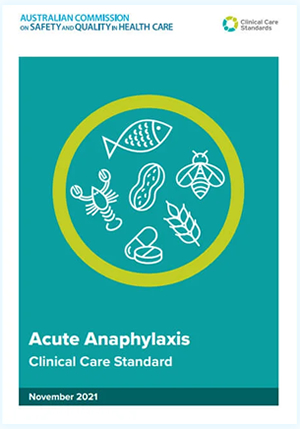Acute Anaphylaxis Clinical Care Standard
 The National Allergy Strategy is proud to have supported the development of the Acute Anaphylaxis Clinical Care Standard.
The National Allergy Strategy is proud to have supported the development of the Acute Anaphylaxis Clinical Care Standard.
The Acute Anaphylaxis Clinical Care Standard is underpinned by ASCIA’s guidelines for the acute management of anaphylaxis. We believe the Acute Anaphylaxis Clinical Care Standard will help improve emergency treatment of anaphylaxis in Australia whether it is being managed in a hospital or in the community by paramedics or general practitioners.
The Acute Anaphylaxis Clinical Care Standard also ensures that the patient’s needs are supported allowing patients to have easy access to their adrenaline injectors when in hospital and most importantly, provided with education, support and referrals they need when they are discharged after anaphylaxis.
Go to Acute Anaphylaxis Clinical Care Standard
Content updated March 2022

